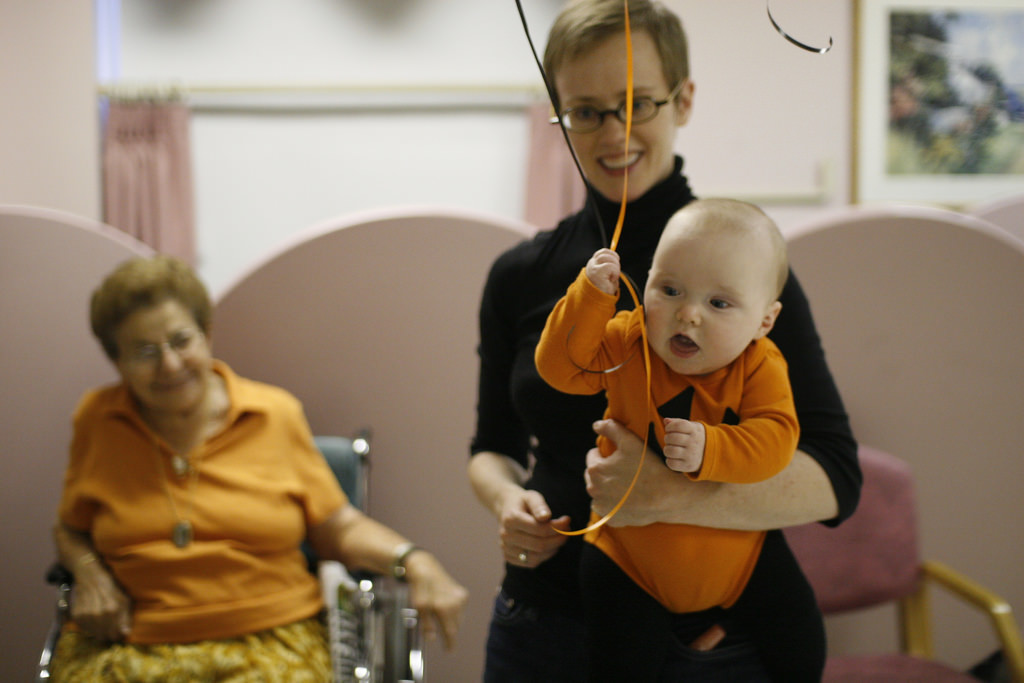Katie Price, a British celebrity, has made the news this week as she has come out and admitted that she is struggling to care for her disabled son Harvey. As he ages, he is more difficult to deal with, he expresses destructive urges and frightens his siblings.
Nobody can criticise Price. She has cared for her son with complex needs on her own for a long time and is at her limit. She needs a break, she needs some support, and Harvey himself probably could do with some additional input.
What this demonstrates is that even money and fame do not exempt people from struggling. Katie Price is in a very privileged position and yet she has the same difficulties as working class people who are caring for disabled children, who have fewer options. She deals with the same wet beds, the same temper tantrums, and the same medication dilemmas.
What Price can do – we imagine – is afford the care that other single parents of disabled children can’t. And she is using this option, or at least considering it, as she burns out with her caring responsibilities..
My question, as a disabled person, is always focused on what is best for my fellow disabled people. I appreciate that carers have an incredibly stressful time and a lot of unmet needs, but they are not my priority; disabled people are.
With this in mind, I wonder about residential care for Harvey, and how it will affect him. Good care providers, those who are responsible and responsive, can make a wonderful difference in a disabled person’s life. But the way that care looks and how it is carried out must be scrutinised.
There is residential care and there is residential care. Supported housing, for instance, can be a wonderful environment for disabled person to thrive. I know a learning disabled woman who lives in a shared house with other learning disabled adults that has members of staff come and go to make sure they are all well and safe. I knew another woman who lived in a complex of self-contained flats where staff were available when needed and unintrusive when not.
These are the kinds of circumstances where disabled people can live their lives with independence, but they also receive the support they need. Whether that is round-the-clock care or occasional checking in. They also have the benefit of normalising disability when disabled people live together and share aspects of their lives.
Alternatively, for those with fewer care needs, at home carers can pop in and out perhaps twice a week, perhaps four times a day. They can help with washing, dressing, keeping clean, cooking, housework, and support the service user in living their own life. This may include taking them out to social or community activities or helping them get to and from their job. Good carers enable disabled people to live well rounded lives while staying in the background and not taking credit for the disabled person’s achievements.
And yet while there are great carers, there are also those whose primary focus is not on enabling a disabled person to live a dignified, independent life. And whether a disabled person can live a dignified, independent life can depend significantly on their living situation. Group care homes can be unpleasant, depersonalised environments that do nothing to support the residents’ dreams. And we all have dreams.
It is about whether a person’s care is centred around the needs or whether their needs are managed according to the care available. Does anybody really want to wait to go to the toilet until somebody is free to help them? Does anybody want to wear nappies because their toilet time has been rationed? Does anybody really want to eat whatever slop is served up, despite their intense cravings for a pizza or a fresh salad?
This is not to say that all residential care homes are bad. There are some with a wonderful reputation that enrich their residents’ lives. There are some that focus on personalised care plans. But until that is the norm, we must campaign for individualised care that recognises the unique needs and requirements of each person.
And the reason we do not have those things is, of course, that it costs more money to look at a disabled person and work out how their enjoyment of life can be maximised while their dignity and individuality are honoured. It costs more money to provide two carers four times a day at somebody’s home than it does to have twelve disabled people living in close proximity with a couple of carers on hand to cater for them all.
When the government closed down the Independent Living Fund, we knew that there would be fights ahead. It was a clear signal that our individuality and personal lives were less important to the Conservatives than the money it took to keep people living independently. Since then, social care funding has been cut so that even those with less intense support needs are receiving less care than they used to. I hear of all kinds of excuses given to justify stopping somebody’s support.
And this is where our fight has to be. If young people are being put into residential care because their parents cannot cope, every measure must be put in place to help their parents cope. This may be expensive but it puts young disabled people’s lives fast and helps everybody, parents and siblings included.
Not every young disabled person will be able to continue living at home with their parent or parents but ensuring that the care they receive puts them at the centre rather than the periphery of their own life is the absolute minimum that we should strive for.
Photo: Ginny and John Woods

